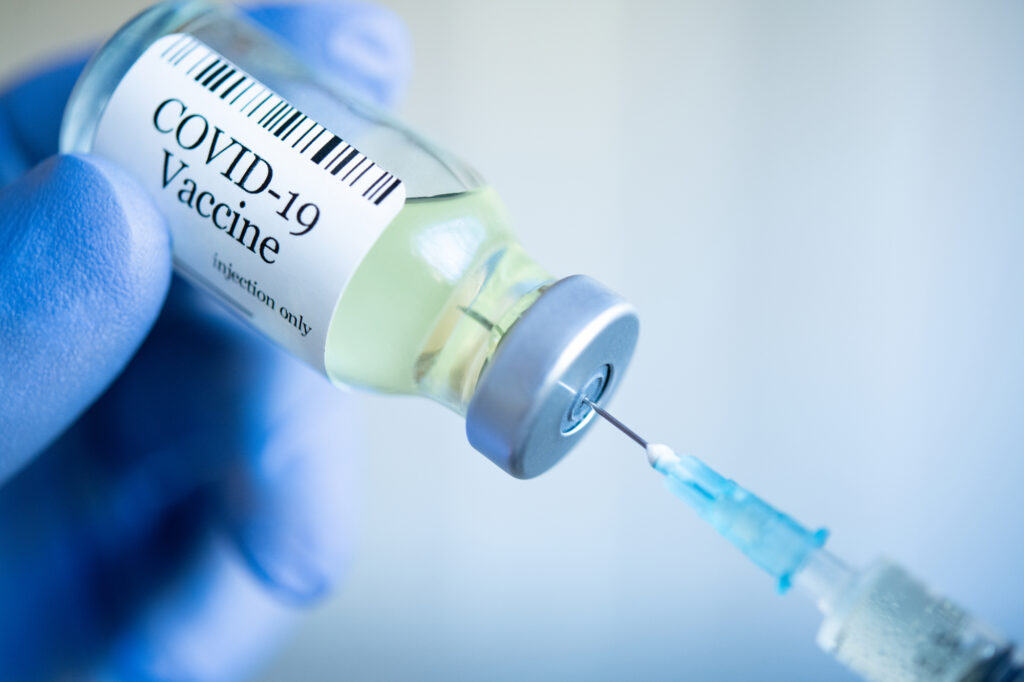Obesity has long been established as a risk factor for developing severe Covid-19. During the pandemic, people with obesity were more likely to be hospitalized, require respirators, and die from the virus than people with lower weight. And while studies have proven that vaccines are highly effective at reducing symptoms, hospitalization, and deaths, vaccinated people with obesity remain at higher risk of developing severe disease than vaccinated people with lower weight.
The reasons for this variance in the vaccines’ effects have thus far remained unclear. But two teams of British scientists from the Universities of Cambridge and Edinburgh believe they may have found the answer. Their study, which was published on May 11 in the journal Nature Medicine, found that the ability of antibodies to neutralize the virus declines faster in vaccinated people who have obesity, a result that could have far-ranging implications for public vaccination policies.
The Study
The team from the University of Edinburgh examined real-time data tracking the health of 3.5 million people in the Scottish population as part of the larger EAVE II study, and compared hospitalization and mortality from Covid-19 in obese and non-obese adults who received two doses of either the Pfizer-BioNTech BNT162b2 mRNA or AstraZeneca ChAdOx1 vaccines.
They found that people with severe obesity (a BMI greater than 40 kg/m2) had a 76 percent higher risk of severe Covid-19 outcomes, compared to those with a normal BMI. A modest increase in risk was also seen in people with obesity (30-39.9kg/m2) and in those who were underweight.
Additionally, so-called “breakthrough infections” after the second vaccine dose also led to hospitalization and death sooner (from 10 weeks) among people with severe obesity and obesity (after 15 weeks), than among individuals with normal weight (after 20 weeks).
Meanwhile, scientists from the University of Cambridge compared the number and function of immune cells in people with severe obesity as compared with those of normal weight. They studied people six months after their second vaccine dose and then looked at the response to a third booster vaccine dose over time.
They found that while people with severe obesity had similar levels of antibodies as those with a lower weight six months after the second dose, the ability of those antibodies to work efficiently against the virus (known as “neutralization capacity”) was significantly reduced in people with obesity. Some 55 percent of patients with severe obesity were found to have unquantifiable or undetectable neutralizing capacity, as compared to 12 percent of people with normal BMI.
When patients were given a third (booster) dose of vaccine, the ability of the antibodies to neutralize the virus was restored in both the normal weight and severely obese groups. But the researchers found that immunity again declined more rapidly in people with severe obesity, putting them at greater risk of infection over time.
Conclusions
“It is promising to see that booster vaccines restore the effectiveness of antibodies for people with severe obesity, but it is concerning that their levels decrease more quickly, after just 15 weeks,” said James Thaventhiran, MD, of the MRC Toxicology Unit in Cambridge, one of the study’s authors. “This shows that the vaccines work as well in people with obesity, but the protection doesn’t last as long.”
If these results are confirmed by further studies, it could impact how public health organizations around the world distribute vaccines. “More frequent booster doses are likely to be needed to maintain protection against Covid-19 in people with obesity,” said Prof Sadaf Farooqi, another of the study’s authors. “Because of the high prevalence of obesity across the globe, this poses a major challenge for health services.”






